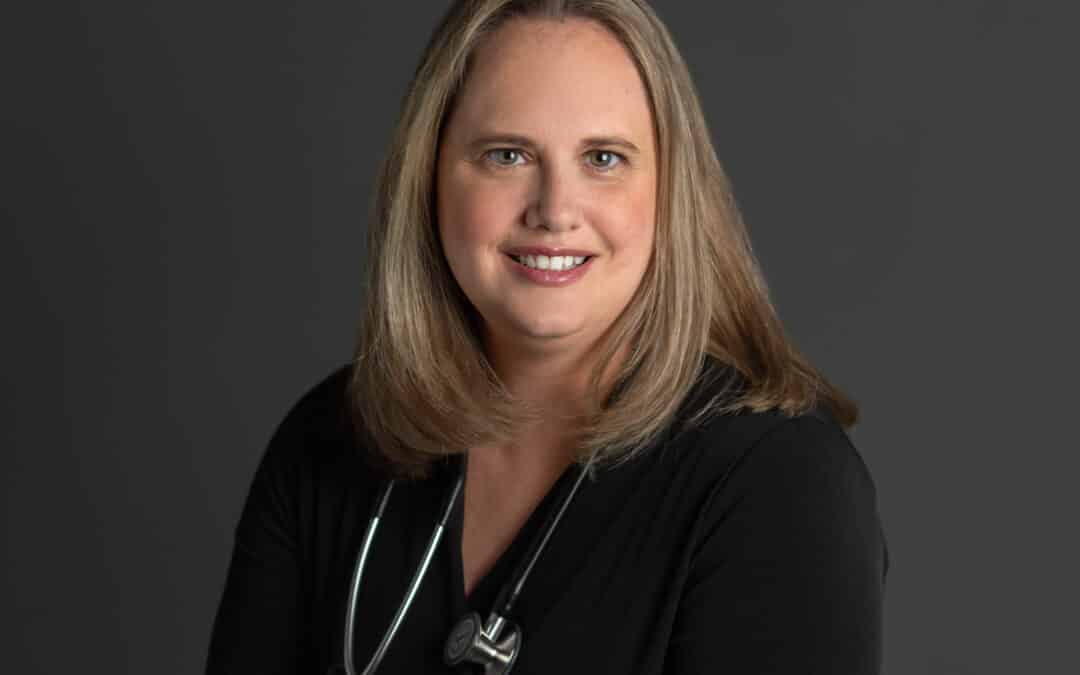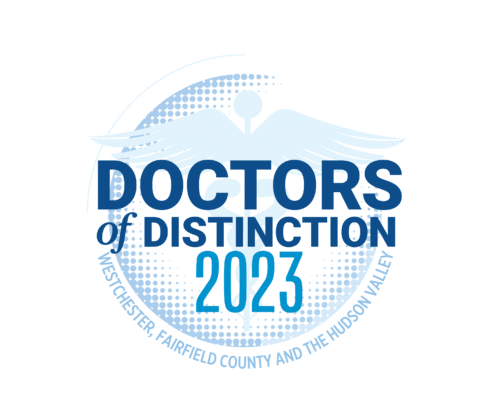
by Specialdocs Consultants, LLC | Nov 28, 2023 | Industry Insights
Dr. Jenifer Drummond
From the Fast-Paced World of Hospital Medicine to the Rewarding Practice of Concierge Care
Making the change from inpatient hospitalist at a busy facility to concierge physician at a small private practice has proven to be dramatically different in virtually every way. Hospital medicine is fast-paced. The illnesses treated are acute, often severe, and are typically life- or limb- threatening. The average length of stay is less than 1 week, and when patients are discharged home, we hope they receive the follow up care and services needed to fully recover. We don’t know when, or if, we’ll see the patient again. By contrast, outpatient medicine at a concierge practice has a much slower, more deliberate tempo, allowing the physician-patient relationship to develop meaningfully over time. Patients are seen for mild, acute illnesses as well as for management of their chronic conditions, and preventative care is prioritized for long-term good health. Practicing this way has opened my eyes to how profoundly concierge medicine can impact patients’ lives.
The power of personalized care
Having practiced hospital medicine for over a decade, it’s incredibly gratifying to now be on the flip side of patient care. I see the difference on so many levels. Being available to my patients for small health issues can prevent them from becoming bigger problems needing emergency care or hospitalization. Having the time to understand a patient’s diet, exercise program, or sleep habits enables me to recommend changes that will help them feel better and more fully engage in life. The concierge model is designed to bring the patient’s experience to the next level, including prompt scheduling of appointments when ill, unhurried office visits, and tailored, proactive plans to stay on the path to wellness. The reward, for me, is being able to witness patients achieving their goals, celebrating life’s milestones, and making memories with their loved ones.
Immediate support when needed most
Perhaps the most compelling aspect of the concierge approach is being available to patients when they most need advice and reassurance, many times after office hours, on weekends, or in the middle of the night. I saw this from my earliest days as a concierge physician, when a young patient joined the practice at a particularly stressful point in her life. She came to me in tears, desperate for someone to help her be healthier, but afraid she would be judged. We scheduled her initial, in-depth visit, but before that happened, she broke out in shingles and required immediate attention. The sudden setback in her health was particularly challenging given everything else going on in her life, and greatly compounded her stress. However, the prompt care and guidance I was able to provide made an enormous difference. We texted and spoke on the phone, she sent me a photo, and I started her on antiviral treatment that evening. I made time to see her in the office the next morning, to confirm the diagnosis. Ultimately, her case of shingles was mild, with minimal pain, and I believe much of that is due to being able to connect quickly. She later said that experience alone was worth the annual membership fee. From my perspective, it exemplifies one of the most important values of concierge medicine – offering wholehearted, compassionate support to patients when they need me most. Like a dedicated partner, I’m there for them in sickness, and in health. Spending time with patients, getting to know them as a person, and helping maximize their wellness is what concierge medicine is all about.
Universal appeal of concierge medicine
I’ve also found that people from all walks of life benefit from membership in a concierge medical practice. Busy working professionals with jam-packed schedules are accommodated with easily scheduled appointments that start on time. Those raising children or caring for an elderly family member, who frequently consider others’ needs before their own, find much-needed support in a practice that prioritizes their well-being. Elderly patients receive the empathetic, thorough care they need to manage chronic conditions and enjoy vibrant health in their senior years. Seemingly healthy young patients also benefit from the care at a concierge practice, with a comprehensive yearly physical to ensure they stay on the right track, and prompt appointments when they’re ill.
The opportunity to practice medicine this way and make a meaningful difference in my patients’ lives is truly a privilege. I look back on my first year with a sense of deep gratitude, and look forward to many more years as a concierge physician.

by Specialdocs Consultants, LLC | Oct 17, 2023 | Industry Insights, Patient News
Congratulating our own Doctors of Distinction!
The two-woman team at Darien Signature Health – Amanda Collins-Baine, MD and Jenifer Drummond, MD, FACP – earned the prestigious Doctors of Distinction award from Westfair Business Journal. At the tenth annual celebration of outstanding Westchester and Fairfield county medical professionals, as selected by peers and a judges panel, keynote speaker Adam D. Hammerman, vice president and CFO of New York Medical College, congratulated the winners, saying, “Thank you for what you do to make us all healthier.”

The team was cited for creating an exceptional concierge medicine practice in the community, with outstanding clinical skills and shared values centered on treating patients with great kindness and compassion. They were selected for their “mutual commitment to consistently go above and beyond in delivering personalized primary care to their patients, with direct availability whenever needed to provide treasured peace of mind. The doctors take as much time as needed to know every individual in their practice, and thoroughly explore each one’s unique medical history, lifestyle, and healthcare preferences.” Darien Signature Health was described as “a place where patients feel comfortable discussing their health issues candidly, knowing they will always be heard in a non-rushed, supportive and caring environment. Drs. Collins-Baine and Drummond actively listen to their patients, with great respect for their concerns, and empower them to be active participants in their own well-being.”

About Darien Signature Health
In 2017 Amanda Collins-Baine, MD, founded Darien Signature Health, a concierge internal medicine practice, to offer patients the highest level of personalized care and attention. Dr. Jen Drummond joined the team in 2022, bringing more than a decade of experience as a hospitalist and a shared passion for practicing excellent medicine with empathy and kindness. The number of patients cared for at Darien Signature Health is limited to ensure benefits that include direct after-hours communications, same day sick appointments, comprehensive visits, and a focus on proactive wellness. The practice, located at 53 Old Kings Highway North in Darien, CT, is affiliated with Yale New Haven Health and Greenwich, Stamford and Norwalk Hospitals. For more information, call 203.286.5604 or visit www.DarienSignatureHealth.com.

by Specialdocs Consultants, LLC | Feb 21, 2023 | Industry Insights, Patient News
Jenifer Drummond, MD, recognized by the American College of Physicians for achievements in Internal Medicine
Jenifer Drummond, MD, FACP, concierge internal medicine physician in practice at Darien Signature Health, has been elected a Fellow of the American College of Physicians (ACP). The distinction, based on the recommendation of peers and the review of ACP’s Credentials Subcommittee, recognizes Dr. Drummond’s individual service and contributions to the practice of medicine.
After more than a decade as a hospitalist at Stamford Hospital, Dr. Drummond joined Darien Signature Health in 2022, inspired by the opportunity to provide personalized, preventive care. Her approach includes a yearly 90-minute physical, individualized wellness plan, extended office visits, and prompt availability by cell phone after hours.
“This practice is uniquely designed to stay small, enabling me to establish a meaningful, long-term relationship with each patient,” said Dr. Drummond. “I’m truly gratified to provide care in a very personal and wholistic way, focused on disease prevention and optimizing wellness to help patients live their best lives.”
Board-certified in Internal Medicine, Dr. Drummond is dedicated to educating the next generation of physicians, as an Assistant Professor at Frank H. Netter, M.D. School of Medicine at Quinnipiac University and as an Instructor of Clinical Medicine at Columbia University Vagelos College of Physicians and Surgeons. She graduated magna cum laude from Washington College in Maryland, earned her medical degree from St. George’s University School of Medicine and completed her residency at Stamford Hospital, an affiliate of The Columbia University College of Physicians and Surgeons, where she also served as Chief Resident.
About Darien Signature Health
In 2017 Amanda Collins-Baine, MD, founded Darien Signature Health, a concierge internal medicine practice, to offer patients the highest level of personalized care and attention. Dr. Jen Drummond joined the team in 2022, bringing more than a decade of experience as a hospitalist and a shared passion for practicing excellent medicine with empathy and kindness. The number of patients cared for at Darien Signature Health is limited to ensure benefits that include direct after-hours communications, same day sick appointments, comprehensive visits, and a focus on proactive wellness. The practice, located at 53 Old Kings Highway North in Darien, CT, is affiliated with Yale New Haven Health and Greenwich, Stamford and Norwalk Hospitals. For more information, call 203.286.5604 or visit www.DarienSignatureHealth.com.
About ACP
ACP is the largest medical internal medicine-focused society in the world, with more than 161,000 member physicians, trainees, and other health professionals. Internal medicine physicians are specialists who apply scientific knowledge and clinical expertise to the diagnosis, treatment, and compassionate care of adults across the spectrum from health to complex illness. To be elected a Fellow of the ACP, doctors must demonstrate continuing scholarship and professional accomplishments, and be recommended by other internists for excellence and skill in medical practice, teaching, or research.
by Ivan | Jan 11, 2019 | Industry Insights, Patient News, Wellness

Why Today’s Health News Often Becomes Tomorrow’s Retractions
We’ve all seen it played out hundreds of times, as a drug, food or habit is trumpeted as the way to lower the risk of cancer or heart disease only to be walked back the next month in another study. The reasons can be diverse, including a flawed hypothesis, bad data or misleading conclusions, but at the center is the study design itself. A longitudinal trial may yield very different findings from an observational one, while the gold standard – a randomized controlled trial (RCT) – can be extremely costly and difficult to design. The resulting patchwork of research requires professional analysis and a wait-and-see approach until confirmation is received via follow-up studies. We share some expert insights to help you view new health studies with both a healthy skepticism and the realization that some of the most important medical breakthroughs of recent years have been discovered in just this way.
Fast Facts on Health Studies
1,400
Number of scientific papers retracted each year
Sources: Vaccine Journal August 2018, Centers for Disease Control, Harvard Health
50%
Percentage of scientific studies confirmed in follow-up studies
Source: Healthy Aging Project, University of Colorado, Boulder
Researchers agree that a randomized, controlled trial is the best way to learn about the world. In a drug study, for instance, a population is randomly divided into groups who receive the drug and those who don’t. If properly controlled and designed, any difference in outcomes between the groups can be measured and credibly attributed to the effects of the treatment. The methodology is highly valued in evidence-based medicine, proving that associations are causal, and not just by chance. The approach has powerful real-world applications, as seen in the Women’s Health Initiative (WHI), one of the nation’s largest-ever health projects.
Begun in 1993, with more than 161,000 women enrolled, the randomized, controlled clinical trial was designed to test the efficacy of long-term hormone therapy in preventing heart disease, hip fractures and other diseases in post-menopausal women over 60 years old on average. Previous observational studies had strongly suggested the preventive benefits of hormone therapy, and it was routinely recommended for women years after menopause. What happened next was stunning.
In 2002, the trial was halted three years earlier than planned as evidence mounted that the estrogen plus progestin therapy significantly raised a woman’s chances of developing cardiovascular disease, stroke and breast cancer. Millions of women stopped taking hormone therapy, and the trial has since been credited with reducing the incidence of breast cancer by 15,000-20,000 cases each year since the results were made public. Numerous follow-up studies were conducted to dig deeper into the surprising data, and while they showed that hormone therapy may still be reasonable short-term to manage menopausal symptoms in younger women, it is no longer routinely recommended years after menopause to prevent chronic disease in women.
Similarly, Vitamin E supplements, once thought to reduce risk of heart disease, were found to not have beneficial properties and actually may increase the risk of heart disease in higher doses. Consequently, the American Heart Association now advises that the best source of Vitamin E is foods, not supplements.
The biggest takeaway from both initiatives: the critical need for randomized, controlled trials to prove that associations between an intervention and a disease are causally related.
Nutrition health studies have also come under increased scrutiny, especially with the recent revelation of erroneous data published by high-profile researcher Dr. Brian Wansink, founder of the Food and Brand Lab at Cornell University. Numerous papers have been retracted as the lab’s propensity for data dredging – running exhaustive analyses on data sets to cherry pick interesting and media-friendly findings – came to light. This practice, seen somewhat frequently in food and nutrition research, may be part of why contradictory headlines seem to be the norm.
As the adage goes, data can be tortured until it says what the researcher wants to hear. That’s why your physician will always be the best source for making sense of the tremendous amount of health data released each day…so please ask!
Testing by Design
The most commonly used research models include:
Randomized controlled trial (RCT): carefully planned experiments like the WHI that introduce a treatment or exposure to study its effect on real patients; includes methodologies that reduce the potential for bias and allow for comparison between intervention groups and control groups.
Observational studies: researchers observe the effect of a risk factor, diagnostic test, treatment or other intervention without trying to change who is or isn’t exposed to it. Includes cohort studies, which compare any group of people linked in some way (e.g. by birth year); and longitudinal studies in which data is gathered for the same subjects repeatedly over years or even decades. An example is the Framingham Heart Study, now in its third generation, which has provided most of our current consensus regarding the effects of diet, exercise and medications on heart disease.
Case control study: compares exposure of people with an existing health problem to a control group without the issue, seeking to identify factors or exposures associated with the illness. This is less reliable than RCTs or observational studies because causality is not proven by a statistical relationship.
Meta-analysis: a thorough examination of numerous valid studies on a topic, which uses statistical methodology to combine and report the results of multiple studies as one large study. This is cost-effective but not as accurate as RCTs as the individual studies were not designed identically.
The post Health Studies: Expert Insight appeared first on Specialdocs Consultants.






Recent Comments